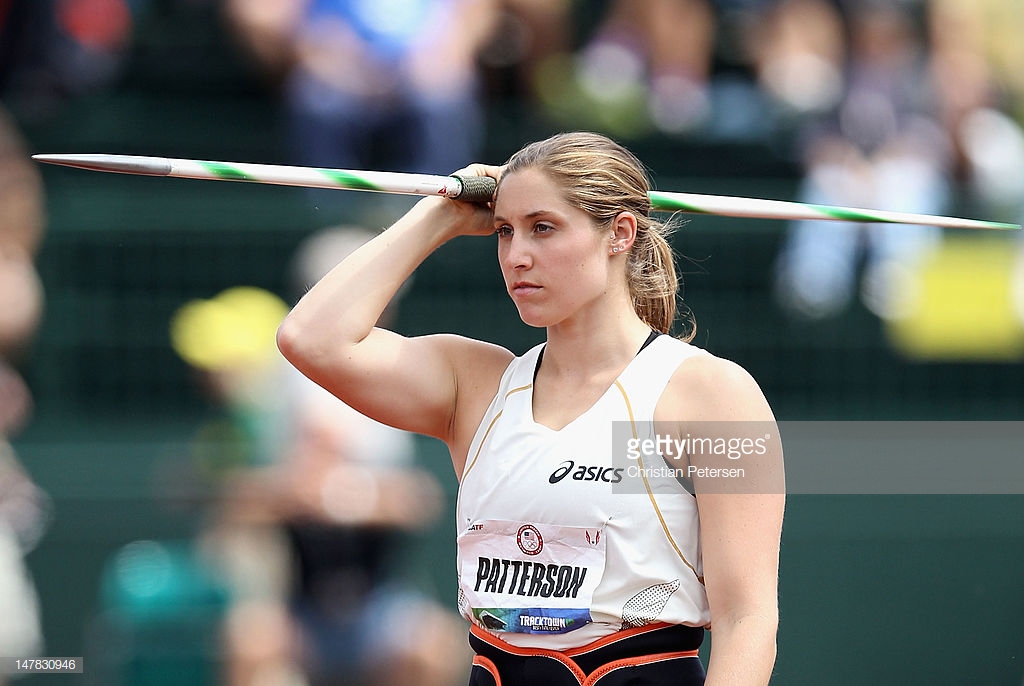I consider myself to be introverted. At MOST, I’m an ambivert! I can turn on the charm sometimes, but in order to truly enjoy social functions in big groups of people, parties are few and far between. At those parties, a stranger I meet surprises me with meaningful conversation (this isn’t that rare actually. Yay, humans!), or I have a few very good friends in attendance who I can easily connect with in the crowd. I’m not necessarily shy, but it took me a long time to realize that I could live my life in a way that brought me life, rather than trying to navigate the world how I saw other people doing it.
Interviews have always been a challenge for me. I get nervous and say dumb things. So far they haven’t been TOO dumb, but the same phenomenon happens socially if a conversation goes on for too long. It’s not quite overwhelming, but right on the edge. The best comebacks appear in my head hours later.
Mall trips in groups of teenage girls were torture for me, and as a result happened only a few times. I had no idea what we were supposed to be doing, not really buying anything but also talking about nothing! I hated seeing the drama in the team sports I played, but always preferred to lead by example. If asked for my input though, I could see both sides and be fair. Friend groups for me were fluid: I flitted between them during school hours and had my few really close, still life-long friends that I spent time with outside of those walls.
I get attached. When I used to be in the dating game (thank goodness that was so long ago), I think I was fairly creepy. If I found someone I liked, I latched on! Mostly just friendships were successful with my awkward methods, haha. I’ve been known to offer a sincere apology with a mismatched, super nervous grin facial expression. When I met Russ, I had honed my social skills a bit, but was also emboldened by my good friend Dana and my instant friend, Britney. And all of our friends, Rum!
I know that I’m not alone as an introvert. I’m currently reading Susan Cain’s 2013 book, Quiet: The Power of Introverts in a World that Can’t Stop Talking. One third to one half of the world finds energy and creativity in being alone rather than with other people! Navigating a world dominated by extroverts as a fairly quiet athlete can be difficult and force you out of your comfort zone, therefore out of your optimal mindset for competition. Learning to say no thank you to spending excess time with people or remove myself from long, crowded conversations around meals took a long time. I am social, just not as much as a lot of others seem to be at big meets or major championships, and walking the line between forming relationships that I do enjoy vs. getting as much alone time as I want is always a challenge. It has become obvious to me that quieter celebrations in victory aren’t as photogenic as the boisterous ones, and can therefore go unnoticed. Take my 2010 Prefontaine win that didn’t make the TV coverage that my parents DVRed at home. It takes quite a bit of practice for me to have a good interview I think. Here are some photos of me not knowing what to do with my hands and/or face!
Understanding certain things about my personality and what this world of athletics can be like brings me here, to explain how introversion can be an advantage as an athlete!
1. Ability to focus.
I know that extroverts can also focus. But I think my preference for alone time also makes me acutely aware that I have limited amounts of it. Wanting to be alone provides me a sense of urgency. I want to get the hard work done while I’m able to focus wholly on it. I work best and hardest either by myself, or with someone that I know really well. Mike Hazle and I were fantastic training partners: While I would absolutely label him an extrovert, we balanced each other very well. There were still a lot of times in our three years together that I was by myself, though, and during those practices, I relished the quiet both outside and in my mind. I’ve grown to like loud encouragement from others (like when everyone is maxing in the weight room), but really and truly improve when I recognize my own quiet strength in the midst of a difficult workout, or in the way I think carefully through a new technical challenge and then implement it successfully. Working through difficulties on my own fuels me in ways that I find invaluable. I practice quiet focus every day, glean strength from it, and take it with me to competition, because when it comes time to perform, everyone is on their own in track and field.
With enough practice, an introvert can reach down inside themselves and find the focus they need to perform at their best, even in the chaos of an Olympic Stadium.
Focus.
2. Independence.
This idea is similar to above, but has to do with the way collegiate programs work sometimes, too. I really hit my stride in college, working with an incredible coach who also was responsible for the pole vaulters, hurdlers, and multi-event athletes. If you’re a collegiate javelin thrower working with a typical throws coach who also oversees shotput, discus, and hammer, I’m sure you have a similar experience to what I did: There simply aren’t enough hours to watch everybody, every day. Coach Zuyderwyk carefully crafted his schedule so that he saw everyone’s technical practices, but auxiliary work was often on our own, and there were very few times he was able to coach me in competition (although those turned out to be some key ones!). I loved being trusted to do work on my own, and the confidence that came from being able to perform solo. I took those lessons straight into the potentially lonely world of professional athletics.
For five years, I lived in Colorado Springs while my technical coach was in a different state. I truly loved my independent practices for most of that time period, and I believe that athletes in general are willing to be hard on themselves when no one else is around. I see introversion mostly as a big plus in this way, but after 2017, I was forced into some reflection on how I could change my input to hopefully change my output in the short rest of my career, and I knew I needed eyes on me regularly again. It was an adjustment to interact with another human at practice! But that process is made easier because Dana knew me well already: Our rapport is easy because we have been good friends for 14 years, and inherently understand important things about each other. A challenge in that transition was to retain some of my alone time. I want to have independent practices, because that is where technical stuff sinks in, and I, plain and simple, love the grind and focus. I have ball days on my own, and recovery work is either in the white noise of the pool or in the quiet wilderness somewhere. Knowing yourself is important: I love being alone and I’m good at it, but I had to let people in in order to grow, too. Independence in realizing those lessons is also powerful.
The independence of introversion serves you to get the hard work done even when you’re completely on your own, whether that’s early in the morning in your family’s basement doing core work in high school, or across the world at javelin practice.
Wandering around by myself in Chula Vista.
3. Solo travel is fun!
I used to judge people who wore their noise-cancelling headphones in the boarding area of airports. Turns out, I was just jealous. I finally bought some in 2015, and those babies are lifesavers on a long solo travel day! I absolutely love zoning out in my artificial quiet, reading books, watching movies, snacking on my delicious snacks that I bring specially for the plane. Layover time means a fantastic nap in a quiet corner somewhere, surrounded by my luggage and as removed from other people as I can get. There’s a really great service-elevator hallway in the Frankfurt Airport. It is entirely more stressful for me to interact with someone throughout a day like this than it is to do it by myself.
The act of traveling alone is something I enjoy, but I also started going on more training trips when we moved to Colorado so that I could be warm, and then later, to learn new things and adjust to time zones before competition. I LOVE solo training trips. The focus is great, the training is usually great, I get TONS of sleep, and I truly enjoy sightseeing on my own timeline. Maddie the Dog came with me to Austin in 2017, and I did hardly anything social for two weeks without her, which suited me (and her) great. In the summer of 2017, while in Leuven, Belgium, I took a day trip to Ghent alone and had one of my more emotional reactions ever to art in front of the Altarpiece. I spent 2+ weeks in Offenburg alone last year, and it was fabulous.
I’ve had some really great experiences with other people while traveling. Things like the Delirium Brewery Tour in Melle, paddleboarding with Barbora and Dana in Prague, and a beer garden with lots of good friends in Cologne are irreplaceable memories. I just know about myself that I have to get amped up for group experiences, while solo stuff re-energizes me! And in this sports world (at least the way I navigate it), there is a lot of opportunity to be alone and abroad. So that “loneliness” actually helps me get ready to compete at my best!
Introversion means you can come up with brilliant ideas on your quiet commute, whether that’s down the street or across the world. Maybe you think up a business idea between classes or go to dinner by yourself with your favorite book. Perhaps your personality means that you reflect deeply on what a group experience in a far-away land means to you, and keep that in mind moving forward. You do you!
A quiet moment wondering how to interact with children during a kids’ clinic in Zurich in 2010.
Tools for success as an introvert in a competitive world (especially while traveling):
1. Good headphones. Hide from the world when you need to.
2. Interesting conversation points at-the-ready. When you’re confronted with talking to people you don’t know or a group situation you want to participate in without feeling drained, have some stuff to bring up. I like to stay current on my podcasts and some news so I can jump in and be excited about the conversation.
3. Set roommate expectations early. This can be truly difficult. But being friendly sometimes and brave enough to stay quiet others can be such a relief. I like to take naps or a shower to introduce quiet if my roommate is a talker. Again, a truly tricky subject.
4. Find a quiet place if it’s not your room. If you can’t manage to strike a balance that feels good to you in your room, find a comfortable, quiet place elsewhere. I sit in Starbucks and write or read sometimes. There are sometimes lobby lounges with comfortable chairs. I’ll opt for the hotel gym rather than a practice facility if it means I can get some solitude. Carve out your space.
5. Go for walks. Similar to above. Get away from it all, and you’ll see sights as well!
Are you also introverted? How can you carve out a bit more recharging time in your day, so that you’re presenting your best self to the world? There are a lot of ways to be. Don’t be shy about embracing your own.






